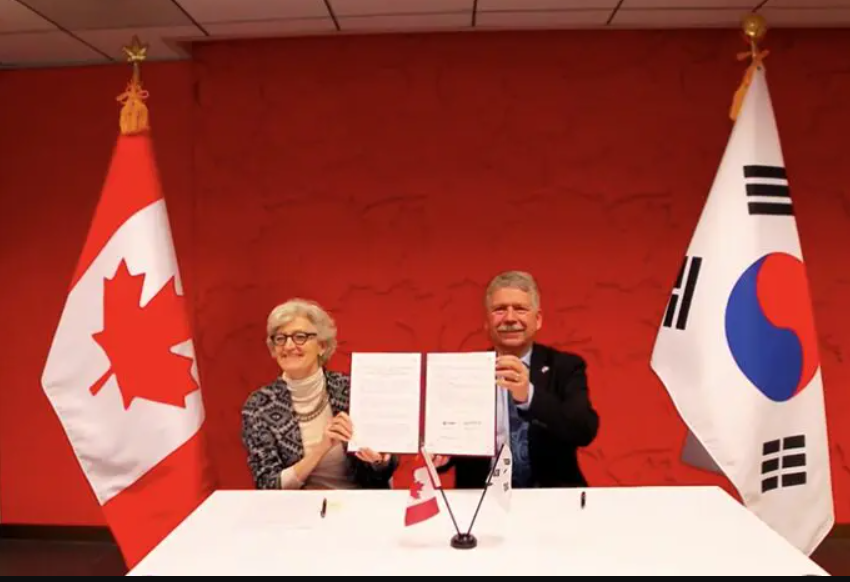Canada-South Korea Ammonia Partnership Strengthens as Trigon Pacific Terminals and Ulsan Free Economic Zone Authority Collaborate
Key Ideas
- Trigon Pacific Terminals and Ulsan Free Economic Zone Authority signed an MoU to develop hydrogen-as-ammonia exports from Canada to South Korea, aiming to expand collaboration and open potential markets.
- The partnership is part of a larger trend, with Hydrogen Canada Corp. and Korea Southern Power also working on clean hydrogen/ammonia projects to export to Asia, supported by the North Pacific Green Corridor Consortium.
- Trigon's strategic location between Canadian producers and Asian markets, combined with UFEZ's expertise, is set to strengthen Canada's position as a key supplier of hydrogen-as-ammonia.
- Industry leaders are actively promoting decarbonization through the development of a green corridor connecting North America, Japan, and South Korea for the transfer of clean commodities.
Trigon Pacific Terminals, based at the Port of Prince Rupert in Canada, has entered into a memorandum of understanding (MoU) with Ulsan Free Economic Zone Authority (UFEZ) from South Korea to collaborate on hydrogen-as-ammonia exports. The partnership aims to establish a framework for expanding trade by developing receiving terminals in Ulsan, South Korea, to facilitate the supply chain into Asian markets. This initiative is part of a broader effort to promote collaboration between the two nations and organizations, with a focus on Canada becoming a preferred supplier in the global market.
Rob Booker, CEO of Trigon Pacific Terminals, expressed optimism about the collaboration, highlighting the strategic positioning of Trigon as a crucial link between Western Canadian producers and Asia-Pacific customers. The agreement signifies a step forward in advancing Canada's role as a significant exporter of hydrogen-as-ammonia, emphasizing the potential for market growth and product promotion.
Additionally, the partnership between Trigon and UFEZ reflects a trend within the industry, as other key players like Hydrogen Canada Corp. and Korea Southern Power are also working on clean hydrogen/ammonia projects for export to Asia. The development of the North Pacific Green Corridor Consortium further illustrates the commitment to decarbonize the value chain for commodities between North America and Asia, promoting sustainability and environmental responsibility.
Overall, the collaboration between Trigon Pacific Terminals and Ulsan Free Economic Zone Authority marks a positive step towards strengthening Canada's position as a leading supplier of hydrogen-as-ammonia, supported by industry-wide efforts to drive sustainable trade and market expansion.
Topics
South America
Trade
Market Expansion
Partnership
Collaboration
Supply Chain
Export Terminal
Industrial Hub
Industry Cooperation
Latest News
